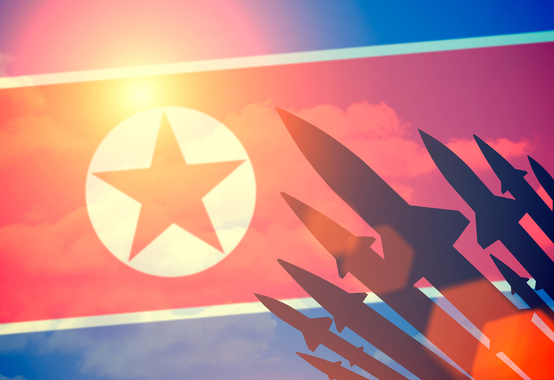 Pompeo, North Korea, and the Nuclear Deal
Pompeo, North Korea, and the Nuclear Deal
Now that Trump has announced that Mike Pompeo is his nominee for Secretary of State, it is worth considering some of what Pompeo has had to say about North Korea and the nuclear deal with Iran at greater length. In an interview this past Sunday, Pompeo restated the administration’s unrealistic goal of denuclearization. He went on to say this:
Later in the same interview, Pompeo contrasted the Obama administration’s nuclear negotiations with Iran with the current administration’s handling of North Korea:
Put simply, the Trump administration is demanding far more from the other side than the previous administration did, and it is unwilling to offer them even as much as the Obama administration offered Iran. To make matters worse, they don’t seem to understand that they are trying to do something much more difficult than what the Obama administration did, and yet they have nothing but contempt for the work their predecessors did in negotiating the JCPOA. If the Trump administration defines denuclearization as the complete elimination of North Korea’s nuclear program and not just the elimination of their weapons, they are truly setting out on a fool’s errand. The idea that North Korea can be made to give up its nukes is already unrealistic. Expecting that they will agree to a deal that is even more onerous and intrusive than the one Iran accepted is just silly. Once the Trump administration reneges on the nuclear deal, they will have even less reason to agree to anything.
There is no relief in sight until the president gets the objective that he has set forth consistently during his entire time in office.That doesn’t suggest that there is an interest in the administration in finding a compromise or in offering North Korea an incentive to reach an agreement. Like other members of the administration, Pompeo seems to think that the “maximum pressure” campaign has been successful and thinks that pressure should continue to be applied to force concessions. If there is “no relief in sight” for North Korea, why would North Korea be willing to give up anything? If their capitulation is required before they are able to get sanctions relief, why would they accept that?
Later in the same interview, Pompeo contrasted the Obama administration’s nuclear negotiations with Iran with the current administration’s handling of North Korea:
CIA DIRECTOR MIKE POMPEO: Yes, Margaret, I think that’s the case. Most importantly the conditions are very different. The previous administration was negotiating from a position of weakness. This administration will be negotiating from a position of enormous strength with sanctions that are unrivaled against the North Korean regime. That conversation will proceed very differently. My critique of the Obama administration’s JCPOA commitment was that they left the Iranians with a breakout capacity. They had a short time frame that these would these restrictions would remain in place. And North Korea’s human capital and enrichment capacity continues to remain in place. Those are…those are all things that present risk to the world and President Obama’s, excuse me President Trump is determined to prevent that from happening in North Korea.It doesn’t make sense to say that the Trump administration is in a stronger position vis-a-vis North Korea than the previous administration was with Iran. The conditions are indeed “very different,” but Pompeo doesn’t understand how they are different. The U.S. is demanding much larger concessions from North Korea with relatively less leverage than it had with Iran. North Korea is a nuclear weapons state whether the administration wants to acknowledge it or not, and they have a nuclear weapons program that Iran did not have at any point. North Korea has to give up much more to satisfy the Trump administration, and it is being offered less in exchange. Even if one were inclined to think that the Trump administration is serious about finding a negotiated solution, this is not a promising start.
MARGARET BRENNAN: So you look at that deal and say, that’s a starting point or that’s at least what we can reach if not go beyond that with North Korea.
CIA DIRECTOR MIKE POMPEO: Yes ma’am.
Put simply, the Trump administration is demanding far more from the other side than the previous administration did, and it is unwilling to offer them even as much as the Obama administration offered Iran. To make matters worse, they don’t seem to understand that they are trying to do something much more difficult than what the Obama administration did, and yet they have nothing but contempt for the work their predecessors did in negotiating the JCPOA. If the Trump administration defines denuclearization as the complete elimination of North Korea’s nuclear program and not just the elimination of their weapons, they are truly setting out on a fool’s errand. The idea that North Korea can be made to give up its nukes is already unrealistic. Expecting that they will agree to a deal that is even more onerous and intrusive than the one Iran accepted is just silly. Once the Trump administration reneges on the nuclear deal, they will have even less reason to agree to anything.
No comments:
Post a Comment